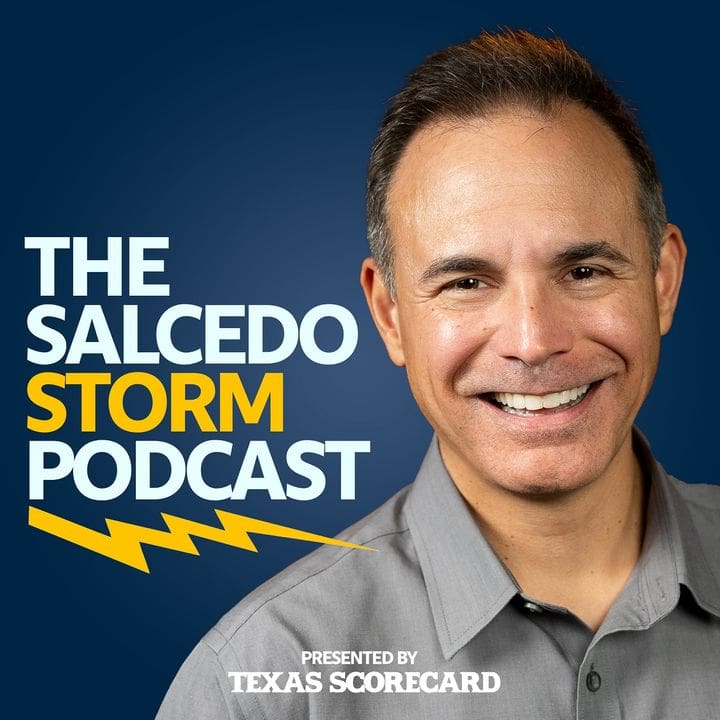Most journalists try to avoid conflicts of interests, or at least disclose such fully and repeatedly. Texas Monthly apparently doesn’t adhere to such a practice as their executive editor regularly opposes higher education reform without disclosing his financial relationship with UT.
Paul Burka, the “senior executive editor” at Texas Monthly has taken to defending the higher education status quo – skyrocketing tuition and a lack of transparency. He follows the administrative bureaucracy party line by deriding reformers, disparaging them and calling motivations into question.
Couldn’t be because he has a financial interest in the status quo, could it? Mr. Burka received $10,159 in compensation ($9,295 in salary) for teaching 13 students. (NOTE: the numbers are from UT’s own data, which the institution says may or may not be valid or accurate.)
He hasn’t disclosed in any recent writings supporting the higher-ed establishment that he is a “visiting lecturer” for the University of Texas, teaching a three credit-hour class – ironically titled “Right And Wrong In Politics.”
Offered in the fall semesters at the Lyndon B. Johnson School of Public Affairs, the course discusses how “[t]he proper role of morality in politics” and “… consider why lying seems to be so prevalent in politics, the influence of the Internet on the democratic process, and whether the nature of politics defies reform.”
Defy reform? Clearly, Mr. Burka and his intellectual betters in the ivory tower are doing their best to defy reform in higher education.
Only in a half-sentence on his well-buried bio on Texas Monthly’s website is it noted that Mr. Burka “teaches at the Lyndon B. Johnson School of Public Affairs at the University of Texas at Austin.” But never in any post or article about the higher-ed reform debate this year has anything resembling a disclosure of this cozy relationship appeared. Why not?
In the April edition of Texas Monthly, Mr. Burka wrote a piece titled “Old College Try” in which he derides those seeking more transparency and accountability as motivated only “to curtail the role of research in higher education.”
No disclosures, though, in the first-person article to the reading public about his relationship with the higher-ed establishment.
In a March 16 blog post titled “Lower ed,” Mr. Burka says that for his April magazine article he “interviewed faculty members and administrators” but golly-gee-whiz he didn’t speak to anyone supportive of reform. Wonder how that happened? A tad bit of selection bias at work, no doubt. (Remember: he never discloses he’s a UT lecturer.)
It’s not that Mr. Burka opposes disclosures per se. He discloses in a May piece titled “We’re number 45” that he went to Rice University. Of course, that was in the context of noting Rice – and other “high-profile private universities” – scored higher than UT’s titular 45th ranking on “the U.S. News & World Report‘s list of the nation’s top fifty universities.”
The Texas Monthly writer also derided nationally syndicated columnist Bill Murchison –a former college professor and retired Dallas Morning News editorial board member – as “shilling” for the Texas Public Policy Foundation when explaining the need for reform. Murchison disclosed in the column his relationship with TPPF as a senior fellow.
From Mr. Burka? No disclosure.
So who is Mr. Burka shilling for? Seems like UT has about $10k in dibs on him. Unless you dig into data, you’d never know it since he sure doesn’t disclose it when writing about higher-ed.
After all, it might interfere with Mr. Burka’s ability to protect the higher-ed establishment’s turf if he admitted his relationships up-front.
Without a whiff of journalistic concern, he wrote in March that “[t]he folk who run modern universities grow testy when politicians threaten to meddle” in their territory. So much for the Fourth Estate holding government institutions accountable.
It appears Mr. Burka – like the higher-ed elite – has a fair amount of contempt for the taxpayers who foot the bill for the academy, and the elected leaders who have a moral and fiduciary responsibility to oversee the way the people’s resources are being expended.
(For what it’s worth: here’s what the Associated Press says about avoiding conflicts of interest.)




